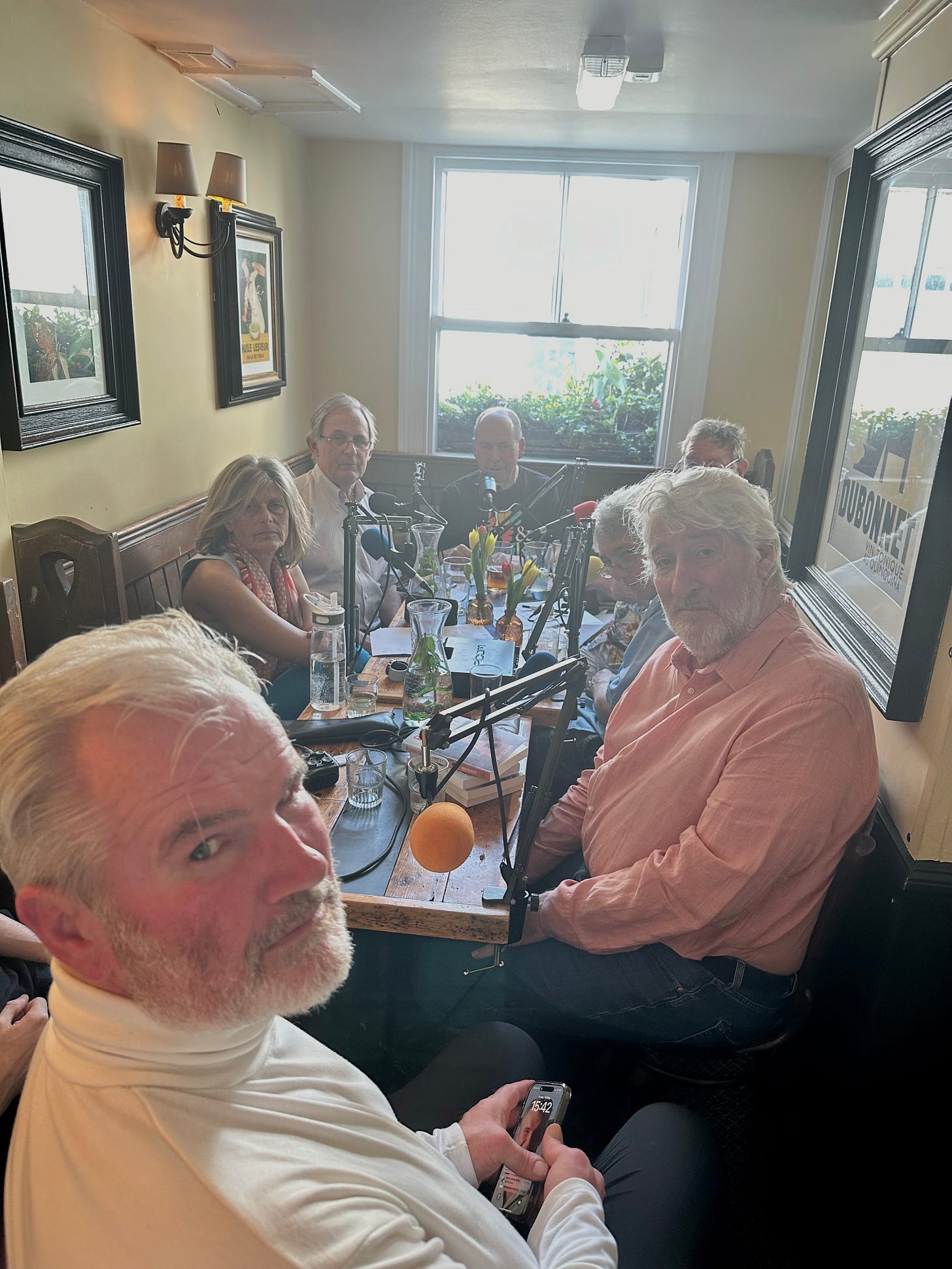Today sees the launch of a Movers and Shakers mini series we are calling Parky Profiles. The idea is to interview interesting and inspiring people with Parkinson’s and ask them not just about the condition but about the rest of their lives. We’ve got a wide range of subjects lined up, the youngest in her early forties, the oldest nearing 80, with occupations ranging from professional quizzer to running one of the UK’s most prominent charities.
But our first guest is a soldier, Colonel Guy Deacon. Guy, now retired, completed an amazing feat some years after his Parkinson’s diagnosis, driving the length of Africa. He has just documented his 18,000 mile journey from Morocco to Cape Town in a memoir Running on Empty. One of our previous guests the Cambridge cell therapy pioneer Professor Roger Barker said before Guy set off, “this perilous journey would be a huge undertaking for anyone, but for someone living with Parkinson’s, it is a remarkable challenge.”
We learn first about an army career that seems to have been almost preordained: “My father was in the army. I just wanted to do the same thing. It never really crossed my mind to be a fireman or a policeman or anything like that.And luckily, all the doors opened at the right time.”
Among the highlights of a career stretching over three decades was 18 months with the UN in the Democratic Republic of the Congo, disarming and demobilising rebel forces. It was in the Congo that he first suspected something was going wrong with his health:
“My right arm would float at waist height for no apparent reason. I'd have to slap it out of the way… ..When I was reading my book in bed, I just couldn't grasp the page and turn it over. I would stumble a bit with my right leg, and I didn't really understand that. And the strangest thing was, I couldn't get my right hand into my pocket.”
He was in his late forties then and when he got back home from the Congo his wife told him he needed to go and see a doctor. A Parkinson’s diagnosis soon followed but throughout this early period the Colonel seemed to feel it was all a fuss about nothing:“I ignored it to begin with, and then when I was diagnosed, I kind of made very light of it, because I didn't want to upset anybody.”
His employer, the army, seems to have behaved very well, with no pressure to retire and lots of help. The message from his commanding officer was straightforward: “Just come to work, do what you can. We'll look after you.” A message then for other employers.
But the main focus of our interview is Guy’s epic African journey which took place in two parts - the first taking him from Morocco to Sierra Leone until Covid forced him to return to the UK, the second seeing him return in 2022, with his Parkinson’s more advanced, to complete the journey to Cape Town. What becomes clear is that between the two stages the aim of the trip changed. He had set off wanting to show that the disease need not stop you from fulfilling your dreams but ended up with a mission to spread awareness about Parkinson’s in Africa and dispel some myths.
But he told us that it was wrong to assume all African countries were the same:”It's very easy to assume that what was happening in one place is the same elsewhere, and it's not.” But life was grim for people with Parkinson's in some places: “In the worst case, they are ostracised, stigmatised and assumed to be cursed. They must have done something wrong in their former life, there must be a reason for it. So they are literally abandoned to their fate.”
Everywhere he went, the Colonel got himself on television and radio, trying to banish those myths but also becoming a powerful voice lobbying for better treatment for people with Parkinson’s across the continent. He reckons, given the audiences of the shows where he was a guest, that he might have reached as many as 500 million people, some of whom would stop him in the street:
“People were fascinated by this story about this idiot who's driving to their country from England - they couldn't understand why. There's always a reason why they want to talk to me, and it's very easy to turn the conversation to Parkinson's.”
We hear lots more about the challenges of driving with Parkinson’s, dealing with breakdowns when the nearest spare parts are thousands of miles away, and coping with symptoms, and we learn what the Colonel’s next major trip will be. But enough spoilers - tune in and listen to this inspiring man, and find out what Jeremy Paxman’s cheering conclusion was right at the end of this episode.






Please tell me that at least some of your interviews will be with women. It seems that men with Parkinson’s are queuing up to tell their stories but, apart from the wonderful Gillian Lacey Soleymar, we just don’t see women with Parkinson’s in the news. Please, please, please redress the balance.